The majority of business nowadays uses content marketing. But why is everyone hopping into the wagon of content marketing?
Content marketing costs 62% less than traditional marketing and generates around 3 times more leads! That’s why despite content development being an overwhelming procedure, it has become every business owner’s top marketing strategy.
Now you may have questions like:
- What is content development? (Content development definition)
- Why is content marketing becoming so popular these days?
- Do you need it?
- What benefits does it possess?
- How does the content development process work?
To get all these answers, keep reading.
What is Content Development in Writing?

The process of planning, researching, writing, publishing, editing, and promoting written content to achieve a business goal is referred to as content development in writing. Sometimes, the goal is to carry out a website content marketing strategy or build relationships with the target audience. However, the ultimate goal is to increase customer traffic to the business, resulting in increased sales.
Developing written web content can involve creating blog posts, ebooks, white papers, product guides, case studies, step-by-step guides, listicles, tips, customer success stories, and a wide range of other things.
Content development is a long-term process. Creating compelling content requires setting digital marketing goals based on the target audience.
Not only that, but the entire process also involves creating optimized content, publishing it, and then monitoring the results to see if the objective has been met or not.
Although content development takes a lot of time and effort, the rewards are enormous.
What are the Responsibilities and Duties of Content Developers?
A content developer is the one behind creating the online content we view as blogs or any other resource on a website or different platforms. They produce unique business content with their exceptional creativity that captivates readers and converts them into customers.
However, to ensure effective marketing content and reach a wider audience, they must complete a great deal of varied work.
Let’s look at the duties and responsibilities of a content developer so that you can fully understand what they do:
- Learn about the company, its products, services, and goals to identify the target clients.
- Create effective strategies and evaluate their efficacy before implementing them for unrealistic or unclear goals.
- Collaborate with other team members to conduct market research and perform brainstorming to come up with creative and relevant content.
- Create reader-friendly content to make them engaging and entertaining experience for the reader on a regular basis.
- Create content ensuring technical factors, for instance, SEO optimization for higher clicks and search engine rankings.
- Proofread contents to avoid errors.
- Analyze web traffic and performance metrics to pinpoint areas that need improvement.
- Monitoring the effectiveness of the content strategies to optimize the effective ones and replace ineffective ones.
- Create every necessary content for the company, for instance, blog posts, social media posts, newsletters, and other marketing or promotional materials.
12 Strategic Content Development Processes to Improve Your Content
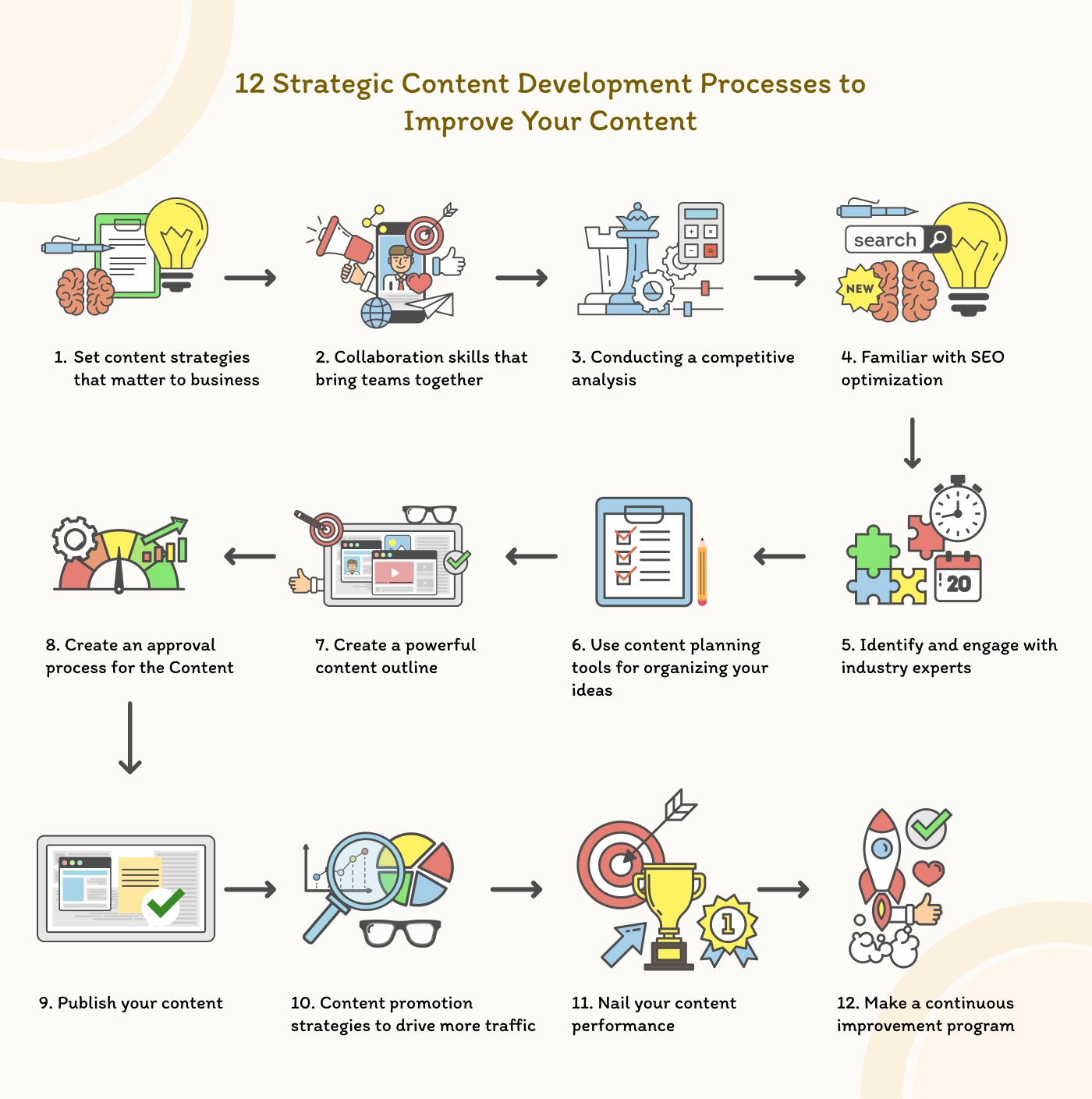
The following list of 12 efficient content development techniques can help you make your content better:
1. Set content strategies that matter to business
Content strategy is an essential step in the content development process. You can increase your chances of developing successful content through carefully planning and executing your content strategy.
But how do you create a content strategy that is appropriate for your business?
The first step is to research your target customers to identify their needs. Customers won’t even bother going through your content if it won’t be of any use to them.
However, creating content focusing only on customers’ needs won’t generate enough revenue.
Creating content should have two goals: bringing in customers and generating revenue. Therefore, you need to set your business priorities too.
You can observe and analyze your competitors to get ideas regarding how they are doing business, how they are attracting customers, what goals they are achieving, and so on so that you can set your own goals and priorities.
Creating a content strategy should be simple once you’ve determined your business goals and customer needs. You can determine whether your target audience will prefer reading lengthy or brief articles, informative or thought-provoking blogs, or content on websites or social media.
Once the type of content has been chosen, you should be able to develop content strategies that will result in engaging content that will attract consumers to subscribe, share, stick around, try out your services or products, and eventually purchase them.
2. Collaboration skills that bring teams together
Collaboration with team members is a key component of content development. When the team as a whole brainstorms together, it becomes easier to come up with ideas for developing quality content.
Besides, collaboration with the sales team can help you generate content ideas related to customer needs, as they mainly deal with customers and are well aware of their needs.
An ideal content development team consists of the following members:
- Content strategist. Their responsibility includes managing content strategy, editorial calendar, and tracking the performance of the content.
- Content creators. They are the content writers whose responsibility is to write the content maintaining all the requirements of the goal and SEO needs. Editors are also a part of it as they check for grammatical errors, do fact checks, and provide feedback to make the content polished.
- Community manager. Their responsibility is observing audience engagement and responding to comments.
- Content promoter. Their task is to perform promotional activities such as posting on social media sites or sending emails. Although they belong to the marketing team, their contribution to the content development process can’t be overlooked.
- Content analyst. They are assigned to track the content performance and supply the content performance metrics.
3. Conducting a competitive analysis
Background research is essential for gathering data on the target audience and competitors before creating content—such investigations aid in conducting a comparison of your company’s performance with that of the rival.
Besides, you can learn about the strengths and weaknesses of your rivals and comprehend consumer behavior, which will eventually help you plan strategies more successfully.
To make the process easier, you can use SEO software such as Moz, Ahrefs, and many others.
Competitive analysis has a number of benefits, including:
- Provides ideas regarding customers’ needs
- Helps to understand the perception of the customers about the competition
- Helps to generate ideas to keep your company at an advantage over competitors
- Helps in developing strategies for expanding in a new market
- Guides adjustments to the current strategies
4. Familiar with SEO optimization
One of the main marketing goals of using website content is to appear in search results and achieve a higher ranking in search engines.
There is no better way to improve your ranking than by using SEO, as optimizing your content will improve your SERP rankings, which will then increase organic traffic to your domain.
Search engines are designed in such a way that it gives emphasis to the content that uses the keywords with the most search volume. Therefore, creating SEO-optimized content requires proper topic and keyword research.
Some keywords are used as SEO ranking factors, while others are SEO best practices.
So, while developing content, both of these categories should be included. You can use tools like SEMrush, Ubersuggest, etc., for keyword research.
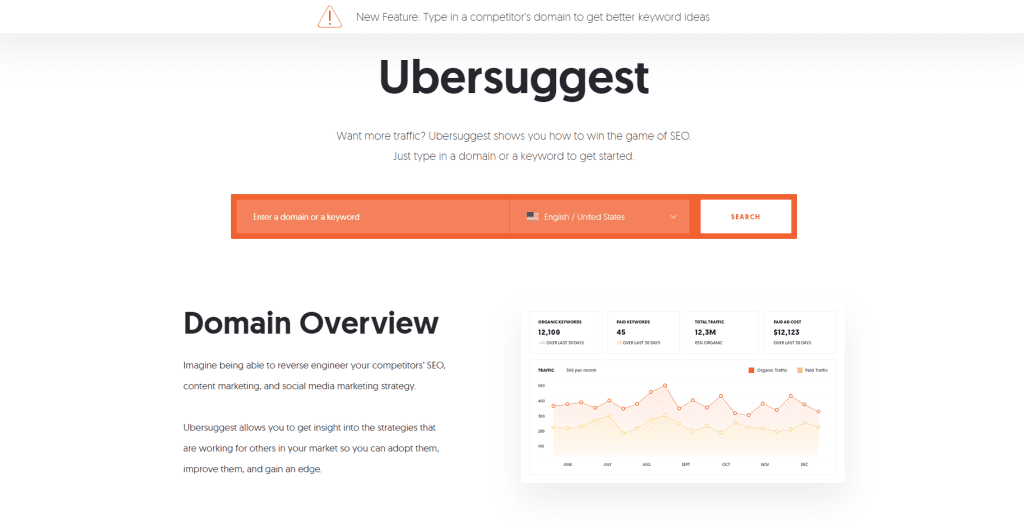
Moreover, each type of content must follow particular SEO guidelines. To help you with the optimization of your content, WordPress has a plugin named Yoast SEO. This plugin can identify the SEO factors in your content and give you a chance to improve your ranking.
Here are a few things you can do to optimize your content:
- Use tools for keyword research on a regular basis.
- Review the key optimization points, such as the length of content titles and meta descriptions.
- Use keyword-rich alt text for the images used in the content.
- Use proper formatting Heading tags (H1 to H6).
- Use short URLs.
- Use long tail and question keywords to include answers to every possible question related to the topic.
- Every topic has a plethora of keywords; use as many as you can while avoiding keyword stuffing.
- Try to cover all of the topics and keywords that your competitors are using.
5. Identify and engage with industry experts
Establishing yourself as an industry expert can provide you with greater advantages. People always turn to experts for guidance on any issue rather than someone random or less knowledgeable.
Consider the cases of Brian Dean and Neil Patel. They are well-known digital marketers and SEO specialists. Every content they create is regarded as trustworthy and has a sizable following.
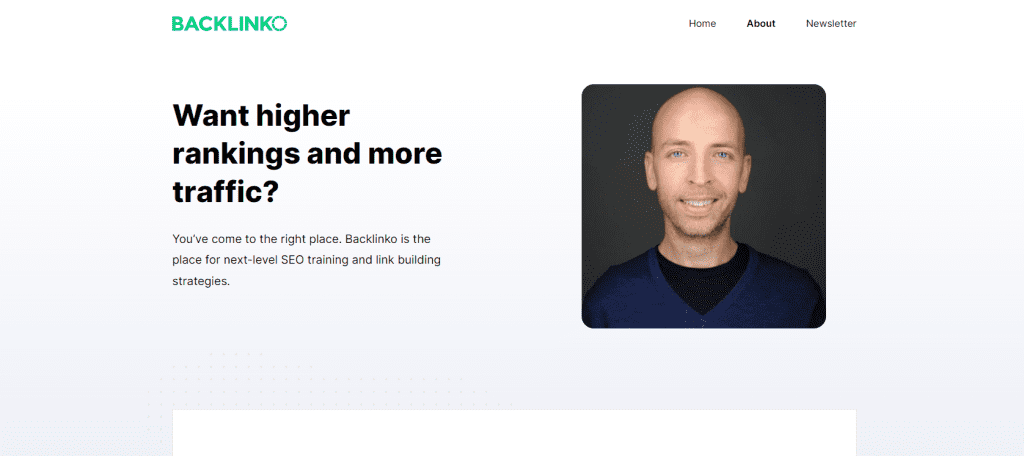
Learn from them and use their ideas, suggestions, and techniques to produce your own content strategy.
You can also reach out to industry experts and engage with them to make your identity stronger and more credible.
6. Use content planning tools for organizing your ideas
Creating content is a stressful job. However, plenty of content planning tools are there to help with content strategy, an editorial calendar, managing projects, and other work to make the job a bit less stressful.
With the help of these tools, you can keep your work organized, help with research, track the team’s progress, and perform other amazing tasks to keep you from overworking.
Let’s check out some of those amazing tools:
Content strategy tools
These tools can be used to handle the preliminary work of editorial planning and research. It can also help you create the right content for your audience and brand while giving your content strategy a definite structure.
Some of these tools are- MarketMuse, Loomly, Concurred, etc. They can evaluate your content and make recommendations on how to make it better so that it ranks in searches.

Editorial calendar
These tools are efficient at tracking the progress of your plan. You can create a content calendar, share it with your team, track your planning timeline, deadlines, and publishing date and even create a custom schedule with your team.
Some of the noteworthy tools are- Google Sheets, Monday, Airtable, Trello, etc.

There are some tools that offer both planning and tracking services. These tools keep all your work in one place, so you don’t have to use multiple tools.
A few of these tools include CoSchedule, Wistia, Gather Content, Upland Kapost, etc.
7. Create a powerful content outline
An outline works as a blueprint for the content. The content development process becomes easier if you know how to start content, what to include, and in what sequence.
Additionally, it organizes the content and enables you to monitor your progress.
The list of benefits a content outline provides are:
- Assists in organizing the content
- Helps to connect ideas
- Helps to maintain coherence
- Helps to maintain the flow
- Serves as a remedy for writer’s block
- Helps to identify the gaps
- Makes content formation faster
- Gives opportunities for linking
8. Create an approval process for the Content
Feedback from editors can significantly improve the quality of content. Even after numerous revisions, it can be difficult for content creators to identify their own mistakes.
Some information may seem important to the creator, but from a reader’s point of view, it may not carry much importance. And for that reason, getting a second opinion is essential.
An editor can look for grammatical errors, poor sentence structures, logical loopholes, unclear points, the tone of the writing, choppy flow, cross-check facts, and so on to guide the creator in making the content polished and error-free. They may also offer new suggestions to add to make it more informative.
You can hire a professional editor, use peer editing, or outsource editing. However, hiring a content writing agency can cut some costs, as their content development service includes proofreading. This means that you won’t need to pay the content developer and editor separately.
9. Publish your content

Before hitting the publish button, ensure your content is perfectly optimized. Even though you are writing for your audience, you should concentrate on following all SEO best practices so that search engines can quickly and easily recognize your content.
The faster Google recognizes your content, the quicker it will reach your target audience.
Moreover, you can use the Term Frequency — Inverse Document Frequency (TF-IDF) optimization method. Although it’s a bit complicated, it works wonders in helping Google recognize whether or not your content has covered all relevant topics.
You should review the following checklist for on-page SEO before publishing your content:
- Keyword incorporated in the URL of the post
- URLs with a short length
- Target keyword used in the title tag
- Use of long-tail keywords in the content
- Target keyword used in the header tags
- Keyword-filled alt text for images
- Use of topic-related internal and external links
- Check readability and format
The checklist mentioned above must be followed for your content to be more visible on Google and generate more organic traffic. After checking everything, you are finally ready to publish your content.
10. Content promotion strategies to drive more traffic
After publishing content, the next major responsibility is promotion. Relying solely on Google is not a great idea to reach your target audience.
Promoting your content across various platforms will help you reach a wider audience.
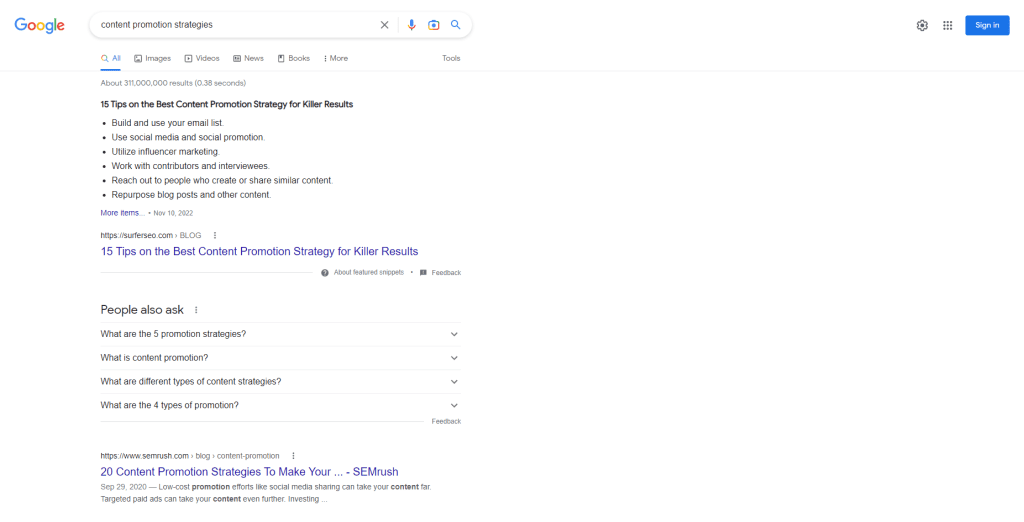
The following are some efficient content promotion techniques to increase website traffic:
Social media

The most dynamic platform for content promotion is social media. Platforms like Facebook, Instagram, Twitter, LinkedIn, YouTube, etc., are the majority of the places your target audience remains highly active.
You can set up a business account, page, or channel on these websites and regularly promote your content. When sharing your posts, use hashtags to make yourself easily discoverable.
Email newsletter
Over 75% of website visitors never make a second visit. But you can make them return through email newsletters. Get email addresses from visitors to your website so you can add them to the email list.
You can send your newsletter subscribers updates about your content, stay connected to them, and bring them back anytime.
Discussion forum
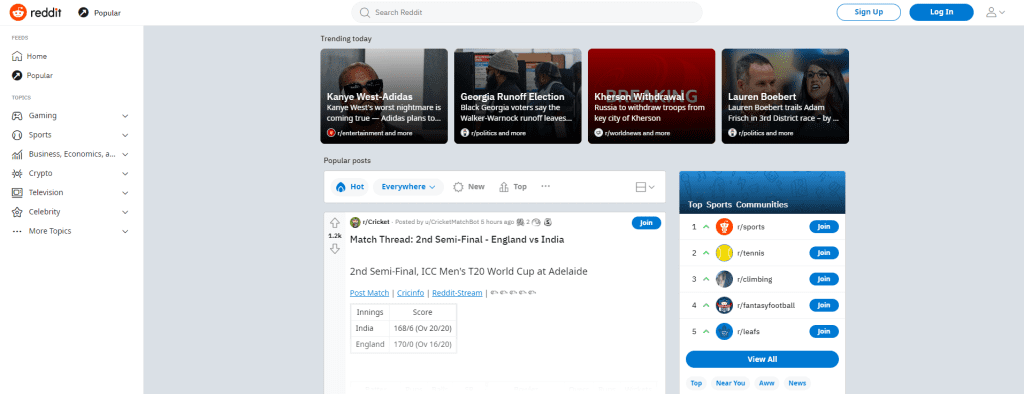
Reddit and Quora are the two most renowned discussion forums that people visit every day to ask questions and share their stories, ideas, and knowledge. You can use these sites to your advantage.
You will find numerous questions related to your content writer. Participate in the discussion and provide answers to their queries.
Also, when posting or commenting, include a link to your website’s content to direct readers there:
Paid promotion
You can also promote your content through paid advertisements, also known as pay-per-click (PPC).
You can run these ads on websites, search engines, social media sites, and other places. Often, you can reach a larger audience through these paid ads.
Industry experts and influencers
Influencers on social media have enormous fan bases. Therefore, working with influencers can help you reach a larger audience without hassle.
Besides, having a good relationship with industry experts can help with your promotional activities by saving positions for free placements and authoritative backlinks.
11. Nail your content performance
The value of your content depends on how well it performs.
Therefore, you must consider a few key performance indicators (KPIs) to determine the efficacy of your content, fill in any gaps in your strategy, enhance it, and tangibly measure your marketing goals.
Some of the important key performance indicators are:
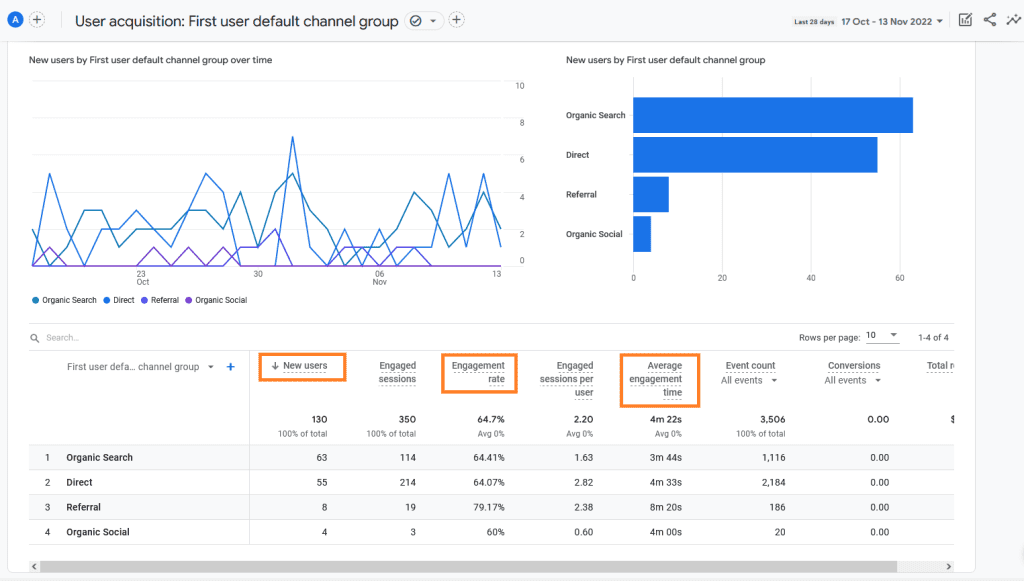
- The number of visitors. The number of visitors is a quantitative metric because it only shows how many new visitors you have received. Even though this number is significant, it is impossible to assess the value of the content. Besides, you cannot identify how long visitors stayed on the page or whether they skimmed the content or read it entirely.
- Page views. Page views enable you to see how many visitors have clicked on your blog. Even though you can’t tell for sure if they found your content useful, the traces of evidence they leave behind as they click on various locations can still be used to connect with other significant data.
- Bounce rate. The bounce rate can identify the number of visitors who left right away after loading your page. Higher bounce rates signify less engaging content, while lower bounce rates signify effective content.
- Time spent on page. This qualitative trait can show you whether your content is engaging enough to hook the readers for the entire time or causes them to lose interest in the middle of the discussion. Analyzing this data can help you determine if your content needs further improvisation or has successfully met users’ expectations.
12. Make a continuous improvement program
Content development is a long-term initiative and necessitates continuous improvement. Therefore, if you believe that your responsibility for content ends after publishing and promoting it, you are only dreaming.
You must continue with the research of your target audience and your competitors. This will help you assess whether you missed any significant information that assisted your rival in gaining more exposure or whether new information has emerged that your content did not address.
Keep studying to stay up-to-date with the trend. Keep an eye out for new keywords with high search volume so you can update your content to make it more educational and useful.
Also, it’s more effective to come up with ideas in groups than to think independently.
Who needs SEO Content Development Services?
SEO content development services are professionals creating optimized promotional materials for online businesses.
Their assistance can help a company rank better in search results, improve website performance, help with content creation, boost website traffic, and do other things that positively impact revenue.
But the question is, who actually needs the SEO content development service?
Check out the list below to find out the answer to this query:
- Startups. Creating strong brand awareness is a major challenge for them because of their limited resources and income. However, content development services can be used as a low-cost marketing tactic, especially for local SEO.
- SaaS companies. Software-as-a-service (SaaS) companies are totally dependent on the digital world. They can advertise their products and guarantee a significant inflow of website visitors through web content development assistance.
- Local companies. These companies can use SEO content to boost their local SEO. As a result, their search ranking will rise in organic search results, encouraging nearby customers to use their service.
- Competing brands. As many businesses use comparable products, both small and large businesses must compete with one another to stay in business. And using a service that creates SEO-optimized content is the best way to stay ahead of the competition.
- Maintenance service experts. Maintenance services such as a cleaner, plumber, car mechanic, etc., are a necessity in everyday life. People search for their assistance every now and then. They can enhance their local SEO through SEO content, which will eventually increase their visibility to the locals.
- Content creators. Content development services can help creators involved in producing audio, video, or written content for their blog or social media pages determine their target audience’s needs and can help them get more reach.
5 Benefits Why Developing a Content Strategy is Important?
A documented content strategy helps guide a company’s marketing initiatives. It can also improve marketing results and return on investment (ROI) by allowing you to understand the purpose of content, type of content, target audience, marketing goals, and many other factors.
Let’s check out the 5 benefits you can achieve from developing a content strategy:
1. Improve brand awareness
The best way to differentiate yourself from competitors is by using content as your brand’s voice. Research shows that 78% of consumers and 80% of business owners prefer to learn about brands through interesting articles rather than watch advertisements.
You can better define your brand and its perception by having a solid strategy guiding the development and distribution of your online content.
You can also share the story of your company and your goals in a strategic way.
2. Maintain consistency
Content strategy helps produce consistent and organized content. If you publish random content on your website, for instance, content related to photography, cleaning services, health services, etc., your audience will get confused and won’t be able to identify your niche.
Consequently, they will not consider you a professional and won’t find your advice reliable.
On the other hand, if all of your content is about photography, your audience will know where to go for assistance with photography-related advice.
Furthermore, sticking to a regular schedule makes you more reliable because your audience knows when to anticipate website updates.
3. Facilitate content creation
Finding ideas for content is extremely difficult. However, if you are clear about the purpose of the content, it becomes easier to come up with topics and ideas.
Usually, content strategies are designed considering the marketing goals.
So, whether your content is for improving brand awareness, increasing conversion rate, or educating customers, the specific goals will easily lead you towards new ideas.
4. Better audience targeting
Every company has a distinct target customer, and content strategy can help you identify them and understand their pain points and points of interest so you can produce pertinent content.
Besides, a well-planned strategy can assist you in achieving the goal of content marketing, which is to deliver the appropriate content to the appropriate audience at the appropriate time.
5. Save time and energy
Content marketing without any specific content development strategy is time-consuming. If you don’t have an idea regarding what to write, how to write, and for whom to write, you will waste a huge amount of time and energy on the trial and error process.
Strategic planning, on the other hand, enables you to understand the requirements of your audience, the kinds of content that would be most appropriate for your website, and the procedure for quickly producing content in an organized and error-free manner.
How Do You Hire a Website Content Developer on a Budget?
The following steps will walk you through how to find a website content developer on a budget:
Decide on the hiring option
Options for website content developers come in a variety of forms. The choice you make regarding which one to choose should be made while considering the size of your business.
Let’s check out the different sources of content developers:
Content development agency

Outsourcing content developer is common these days, especially for small companies and startups. There are many digital marketing agencies that offer content development services at a reasonable price.
The best thing about working with agencies is that they are industry experts and collaborate with experts from various industries. So they can create quality, optimized content that will guarantee better results.
The quality of the content is ensured by the qualified editors and content development managers that agencies employ, who double-check each piece of content before submitting it to you.
You can also request revisions if you need to make any adjustments. However, they cost more than freelancers.
Freelance content developer
On platforms like Upwork, Fiver, Freelancer, etc., you will find numerous independent content developers who are available to work as part-time or full-time employees. This choice is the best for those who want to expand their business operations.
Moreover, you can work with specific industry experts without any additional cost. Additionally, since you can hire them on a project-by-project basis, there would be no long-term commitment.
In-house content developer
You can hire an in-house developer near your area who will join your team and work from your office. Close observation of their work and direct physical interaction are two benefits of working with them.
However, they come with some additional expenses, such as health insurance, workstations (including an office and computer), and many more.
Determine the type of content developer based on your niche
While selecting a content developer, it is crucial to consider your niche and the developer’s skills. You may require different types of content for your websites, such as blog posts, ebooks, checklists, infographics, case studies, promotional emails, social media posts, technical articles, and many others.
Like any other profession, a content developer may have expertise in one or some genres. So, select developers who have expertise in the type of content you need.
You can also select a generalist developer who works with almost every type of content.
However, the content they will produce may not have the in-depth information that an expert can provide.
Choose an agency instead if you want to avoid risk. They work with every possible genre of content. So, they have developers who are experts in all these fields.
So, if you need content for multiple genres, you don’t have to look for separate developers.
Narrow down your selection
Whether you work with an agency, freelancer, or in-house developer, select at least 10-15 at the initial stage. Later, your job is to narrow them down to 5 or 6 candidates.
The ways to narrow down your selection include:
- For freelancers, read their bio, client review, and work history.
- For agencies, go through their website, customer testimonials, and reviews from other websites.
- For in-house developers, consider their work experience and qualification from their resumes.
Test them out and negotiate for the price
Last but not least, you should put their abilities to the test to see if their work will satisfy you. For that, first, you should opt for direct communication over the phone or in person if possible.
You can talk about their working style, knowledge, and other relevant stuff as a part of the interview.
Moreover, you can give them a specific topic and ask them to create sample content. This will allow you to assess their work and decide whom to hire.
After you come to a conclusion, you should start a discussion regarding the specifications of your project and pricing. If necessary, go for negotiation.
How Much will it Cost if I Hire an SEO Content Developer?
The cost of a content developer depends on various factors, such as experience, type of content, content length, payment method, and so on.
According to research, a web content developer in the US costs around $48,996 annually, and the hourly rate could be between $19 and $29, with an average of $24.

On the other hand, freelance content developers from Upwork can charge as little as $35 per hour or as much as $200, and digital marketing agencies may charge between $80 and $950 per blog post.
However, RankUpper provides SEO content development services at a very reasonable rate of $7.5 per hour and $0.06 per word.
FAQs About Content Development Strategic
What is content development strategy?
A content development strategy is the comprehensive group of tasks necessary for creating content. The activities include planning, implementation, and keeping track of the content’s progress to ensure it achieves the marketing goals.
A content strategy enables you to organize your tasks and make sure that every marketing effort is directed toward a specific goal and yields a concrete result, such as driving traffic, boosting sales, or increasing engagement
Who is a content developer?
A content developer is a marketing professional who creates audio, video, or written physical and digital marketing materials for businesses to educate, entertain, or persuade their target audience.
The types of content they produce include blog posts, newsletters, articles, ebooks, white papers, press releases, social media posts, infographics, podcasts, and other resources.
What makes a piece of content successful?
Successful content must adhere to the following standards:
● A great outline
● A compelling headline
● Hooking elements, like an intriguing introduction
● Incorporating a distinctive brand voice
● Engaging with a narrow focus
● Grammatically correct with proper formatting
● Including educating information that helps the readers
How can you measure the results of the content?
Analytical tools can be used to identify specific key performance indicators (KPIs) that are crucial for determining the effectiveness of the content. Some of the important KPIs are- -revenue generated through subscriptions, downloads, and sales.
● Number of visitors, bounce rate, and spending time showing the quality of the content and its acceptance to readers.
● Likes, comments, shares, and retweets, indicate the engagement of the readers
Are content developers and content writers the same?
The fact that both content developers and content writers are involved with the content leads to the common misconception that they are the same person. The strategies are created by content developers, who plan out and schedule the different kinds of content that the business needs.
On the other hand, content writers develop content with a focus on the advertising objective and target audience.
In light of this, even though they are the ones responsible for content creation, their responsibilities and roles are distinct.
Conclusion
It goes without saying that using content development can be one of the most effective ways to boost your traffic and revenue.
However, don’t be disheartened, as results don’t always appear immediately.
As long as you continue to produce optimized content, you’ll see excellent progress.





